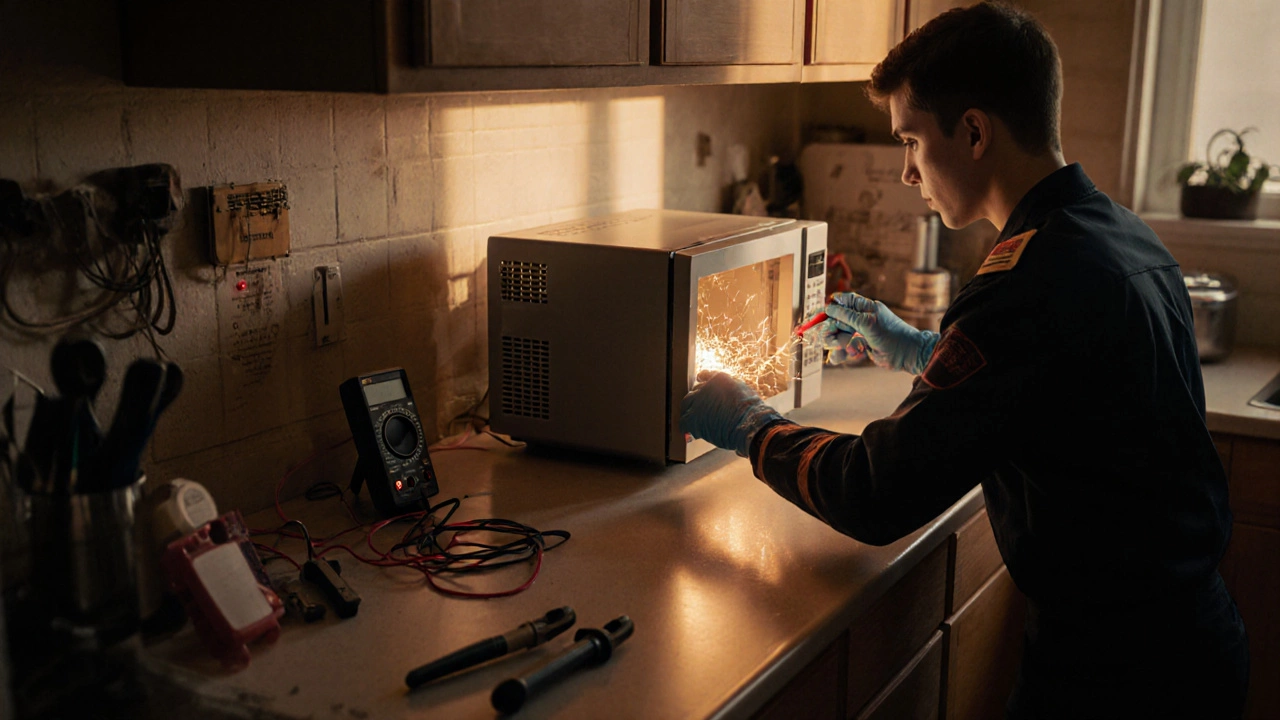When you think about your microwave, a common kitchen appliance used daily for heating food quickly. Also known as a microwave oven, it’s one of the most used devices in the home—but it doesn’t last forever. Most microwaves run for about 7 to 10 years before they start showing serious signs of wear. That’s not a guarantee, though. Some fail after 5 years. Others keep going past 12. What makes the difference? It’s not magic—it’s usage, care, and how the internal parts hold up over time.
The microwave fuse, a small safety component that cuts power if there’s an electrical surge is one of the first things to go. If your microwave turns on but doesn’t heat, the fuse might be blown. But that’s not always the real problem. The magnetron, the part that actually generates the microwaves wears out with heavy use. If you’re reheating meals three times a day, that’s over a thousand cycles a year. Over time, the magnetron loses power, and your food takes longer to warm up. That’s not a glitch—it’s aging.
Then there’s the door seal and the door interlock, the safety switch that stops the microwave from running when the door is open. If the seal is cracked or the door doesn’t close snugly, the microwave might shut off mid-cycle or refuse to start. These aren’t just annoyances—they’re safety risks. A faulty interlock can let radiation leak, even if you can’t see or feel it.
Cost matters too. A new microwave starts around $100. A repair? Often $150 or more, especially if the magnetron or control board needs replacing. If your unit is older than 8 years, spending that much rarely makes sense. You’re not just paying for parts—you’re paying for labor, diagnostics, and the risk that something else breaks next month.
And don’t ignore the little signs. Sparking inside? That’s metal or foil touching the walls. Loud humming? The transformer is struggling. The turntable stops spinning? The motor’s gone. These aren’t random failures—they’re clues. Each one tells you how close your microwave is to its end. Some people wait until it dies completely. Others replace it the moment it starts acting up. Neither is wrong. But knowing what’s normal and what’s not? That saves money and stress.
You’ll find posts here that show you how to test a blown fuse, spot a failing magnetron, or check the door interlock without tools. There’s also advice on whether it’s smarter to fix your 7-year-old microwave or just buy a new one. We cover the real costs, the hidden dangers, and the quiet signs that mean it’s time to let go. No fluff. No sales pitches. Just what actually happens when your microwave starts to wear out—and how to decide what to do next.
Posted by
Orin Trask
0 Comments

Deciding whether to repair or replace your microwave? Learn the real costs, safety risks, and when it makes sense to fix it versus buying new. Based on real repair data from New Zealand.
read more